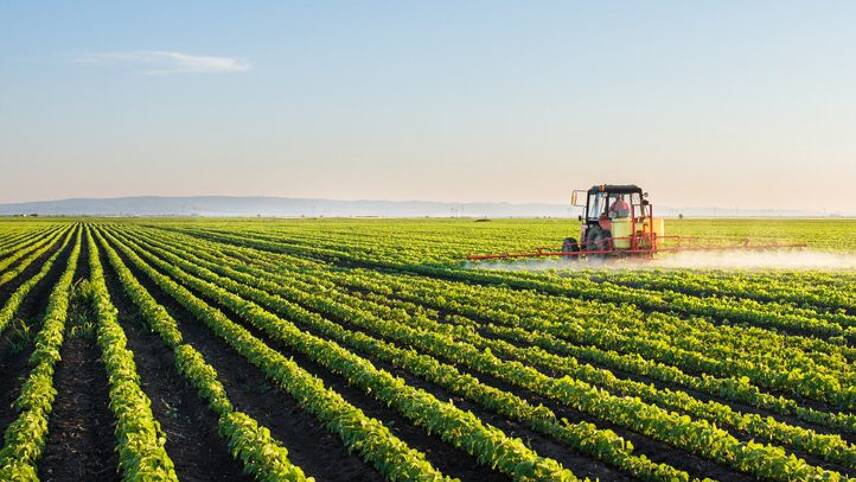Register for free and continue reading
Join our growing army of changemakers and get unlimited access to our premium content

I have seen this first hand in the fields of PepsiCo’s farmers as they battle floods, frosts and droughts – a picture that is familiar for the entire global food industry. Alongside the 3,900 farmers we source from across Europe and Sub-Saharan Africa, we have identified three factors that are key to food security: data insights, knowledge sharing and collaboration.
edie has published a brand-new sector insight report which provides an end-to-end overview of the steps that organisations within Britain’s food & drink manufacturing industry can take to achieve a sustainable future, today. You can download that report for free, here.
Data insights can help protect against climate volatility
When most people think of farms, the idea of data gathering is unlikely to spring to mind, but the use of precision agriculture techniques is starting to revolutionise sustainable food production by delivering breakthroughs in efficiently managing natural resources.
Part of Precision Agriculture is about equipping farmers and growers with easily accessible data. This means they can better understand and monitor the performance of crops, farming practices and fertilizers, with a view to further increase yields and quality and minimizing inputs such as fertilizers. Effectively they are getting more, and better crops from less.
As part of PepsiCo’s Sustainable Farming Programme, we use monitoring and traceability tools in some countries in Europe and Sub-Saharan Africa. In short, these enable us to collect data field by field, which is then made accessible to the farmer via an app and automatically uploaded onto a cloud-based server so we (and the farmer) can view the crop history remotely and use it to develop in-season crop progress dashboards and postseason analytical reports that can provide insights into opportunities for future years.
We know this approach works as we have applied it since 2010 with over 100 Walkers crisps potato farmers in the UK, allowing us to halve the amount of water used to grow potatoes in water-stressed areas.
There is lots of work to do, but we are getting much closer to the data and insights required to take precision agriculture to the next level.
Knowledge sharing can encourage best practice
Soil is the critical ingredient in a successful farm. According to the UN, fertile soil is being lost at an alarming rate. One-third of all agricultural land is severely degraded and, while this may have been the result of natural occurrences, ecological problems can be exacerbated by land management practices.
The food industry has a responsibility to encourage better land management and help build capability among growers. Best practice education is key. Farmer-friendly, practical programmes are needed which can be adapted to fit selected crops and local conditions, particularly to help growers to adopt effective techniques when it comes to variety selection, soil management, crop rotations, fertilizer use and irrigation.
At PepsiCo, we’ve introduced soil compaction training in parts of Europe supported by our Innovator Growers. We’ve also supported farmers in Spain and Portugal in introducing peanut crop into the corn rotations of our growers, which enables the soil to capture the deep-rooting and nitrogen-fixing properties of peanut plants, helping to improve soil health and reduce fertilizer requirements for the following corn crop. In Turkey, we have also pioneered the re-cycling of potato waste turning it into a fertilizer that increases soil’s organic matter. This fertilizer is used across all our potato production and we’re hoping to expand this across more countries.
In a similar vein, growers can be vulnerable to volatile international markets, so the industry needs to equip them with the confidence and information to make the right investments. We provide a level of certainty for our farmers through clear contracts with incentives for better quality, this has helped foster long-term, mutually secure relationships – some extending over three generations.
This level of certainty also supports planned multi-year infrastructure investment, for example, in the last eight years, 89% of our Turkey potato irrigation has been replaced by highly water-efficient low-pressure installations, saving over 14 billion litres of water.
This is a long-term strategy which can lead to water conservation, improved crop yields and better living conditions for the growers.
Collaboration is key to fixing the system
Whatever the answers, no one can do it alone. Agriculture is a highly complex global system.
Collaboration is crucial to creating change for the better at scale. This is a principle that all stakeholders should embrace in everything they do.
Food companies can play a key role in collaborating with farmers and other stakeholders across the agricultural supply chain to help increase productivity, reduce the impact of agriculture on the environment, enhance profitability and protect agricultural workers’ rights.
Good progress is being made, but there is plenty more work to do across the industry to create a resilient, sustainable food supply chain for the future.
By David Wilkinson, Senior Procurement Director Agriculture, PepsiCo Europe



Please login or Register to leave a comment.